「目元をぱっちりさせたい」「くるんと上がったまつ毛にしたい」と思っているのに、まぶたが重くて上がらない…と悩んでいる一重まぶたの人は多いのではないでしょうか。
一重まぶたの人の目元はまつ毛が下向きに生えていたり、まぶたの重みでまつ毛が押されてしまったりして、まつ毛が上がりにくい傾向にあります。
そんな一重まぶたの人でも、ビューラーやマスカラの使い方を工夫するだけで、理想の上向きまつ毛を叶えることが可能です。
今回は、まつ毛の上がらない原因や、重い一重でもまつ毛をしっかり上げるポイントを紹介していきます。
重い一重でまつ毛が綺麗に上がらない!しっかり上げるポイントを解説
「そもそも、どうして一重だとまつ毛が上がりにくいの?」と疑問に思う方もいらっしゃると思います。
一重まぶたのまつ毛がきれいに上がらないのは、以下の原因が考えられます。
まつ毛が上がらない原因①:まぶたの厚みでまつ毛が下がる
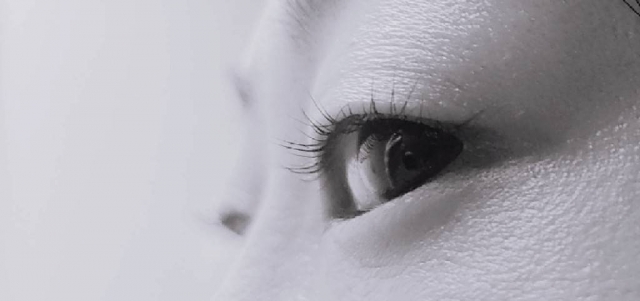
一重まぶたの人の場合、まぶたの厚みでまつ毛の根元が奥に隠れてしまっていることが多くあります。
まぶたが覆いかぶさっていることで、重みでまつ毛が下がってしまい、カールが取れやすくなってしまうのです。
また、ビューラーを使う時にまつ毛の根元を挟めておらず、きちんとカールを付けられていないのも原因のひとつ。
根元からしっかりとカールさせるコツを覚えることが、くるんと上向きまつ毛を手に入れるカギとなります。
まつ毛が上がらない原因②:まつ毛の毛質
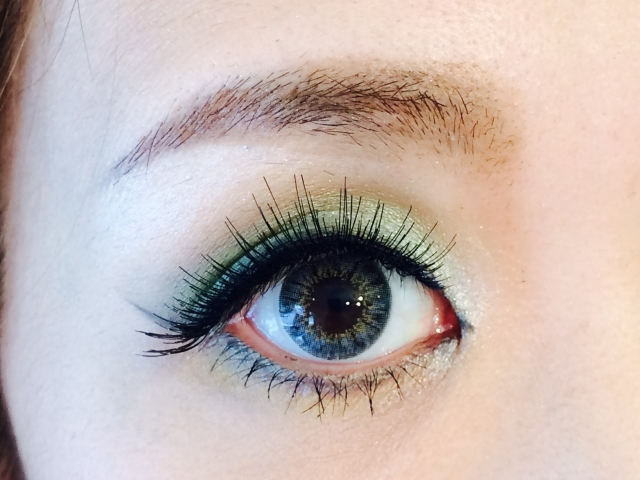
これは一重まぶたの人に限ったことではありませんが、過度のアイメイク等によるまつ毛のダメージや乾燥もまつ毛が上がらない原因となります。
まつ毛美容液などで健康的なまつ毛を育毛することも、上がりやすいまつ毛を手に入れるためのポイントです。
まつ毛にハリやコシが生まれると、ビューラーのかかりやすさが変わってきますよ。
また、まつ毛が直毛の場合、しっかりとクセをつけないとまつ毛が徐々に落ちてきてしまうため、カールをキープする工夫をすることも大切です。
まつ毛が上がらない原因③:まつ毛についた油分や水分
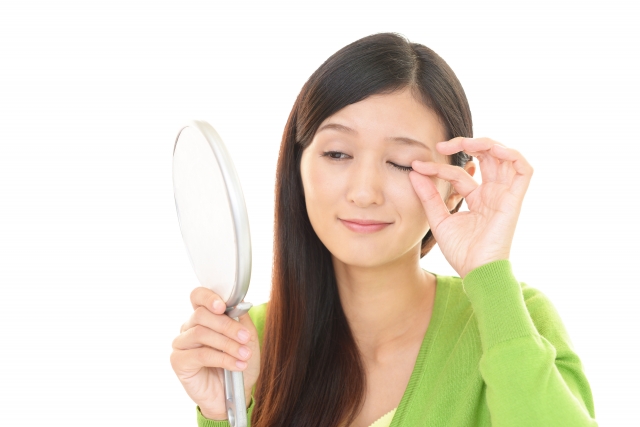
まつ毛に化粧品やスキンケア用品の油分が付着していると、まつ毛のカールが取れてしまう原因となります。
その他に、まつ毛の湿り気にも注意が必要です。
まつ毛が濡れた状態でメイクをすると、ビューラーがしっかりとかかりません。
まつ毛をカールさせるときは、まつ毛が乾いている状態で行いましょう。
まつ毛が上がらない原因④:ビューラーが合っていない
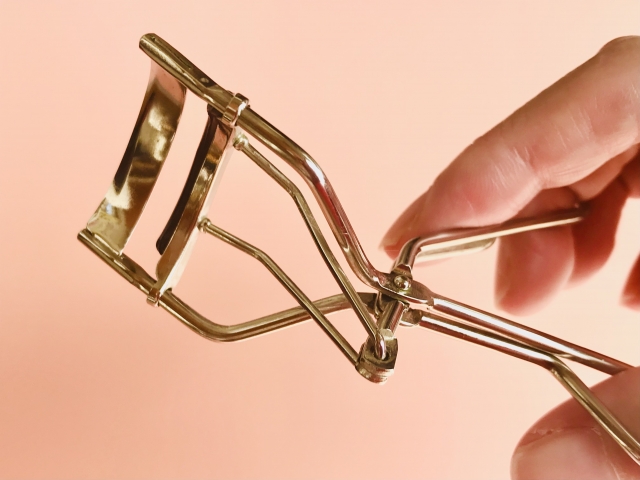
ビューラーは、商品によってカーブの角度や形が異なります。
自分の目に合ったものを使わないと、しっかりとまつ毛をキャッチすることができず、まつ毛をきれいに上げることができません。
使っているビューラーが自分のまぶたにフィットしていないと感じる方は、まずはビューラーを変えてみることをおすすめします。
最近では厚みのあるまぶたでもしっかりとまつ毛を挟むことができる、一重向けのビューラーも売られているので、なかなか合うビューラーが見つからないという方は試してみてはいかがでしょうか。
また、ビューラーのバネが弱くなっていたり、ゴム部分が痛んでいたりすることもまつ毛が上がらない原因となります。
ビューラーのゴムの交換やメンテナンスはこまめに行い、ビューラー本体が劣化した場合は新しいものと交換しましょう。
重い一重でもまつ毛を上向きにカールさせるポイント
ここまではまつ毛が上がらない原因を中心に紹介してきました。
ここからはいよいよ本題となる、重い一重でもまつ毛をしっかりと上げるためのポイントを紹介していきます。
まつ毛を上向きにするポイント①:ビューラーの前に油分をオフする
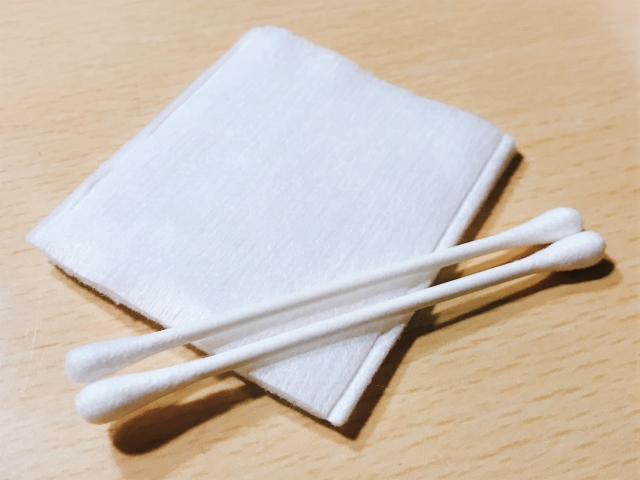
「まつ毛が上がらない原因」でも紹介した通り、まつ毛に油分がついているとまつ毛が下がる原因となります。
ビューラーをする前に油分をオフすることで、まつ毛の上がり方が変わってきます。
綿棒を使って丁寧に拭きとりましょう。
まつ毛が濡れている場合は、しっかりと乾かすことも忘れずに。
まつ毛を上向きにするポイント②:まつ毛コームで毛流れを整える
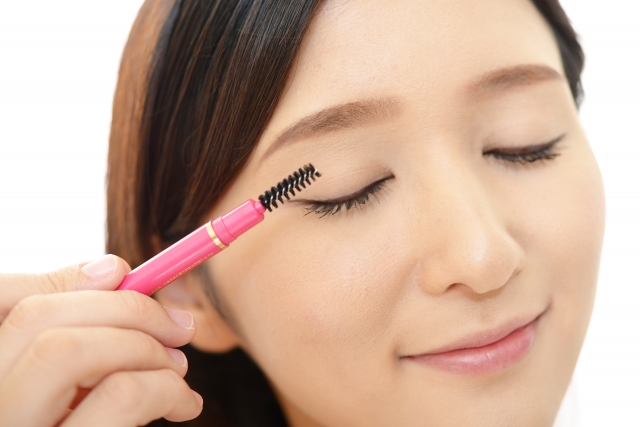
まつ毛が束になっていたり、方向がバラバラになっている状態でビューラーをすると、まつ毛が上がりにくくなり仕上がりも美しくありません。
ビューラーの前に、まつ毛用のコームを使って梳かす一手間を加えると、まつ毛の仕上がりがグンとアップしますよ。
まつ毛を上向きにするポイント③:ビューラーをまぶたに押し上げて根元から挟む
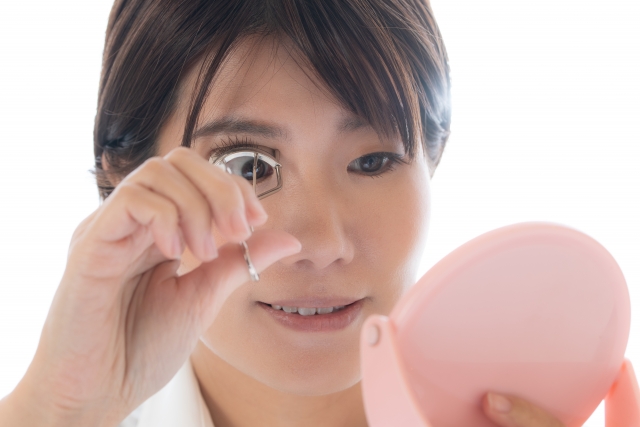
まつ毛をしっかりと上げるためには、根元からカールを付けていくことが重要となります。
一重まぶたの人の場合は、まつ毛の根元がまぶたに隠れていることが多いです。
この隠れたまつ毛の根元から、しっかりビューラーをかけるためのコツをご紹介します。
まずは軽く下を向き、まつ毛の根元にビューラーのカーブを合わせます。
カーブを合わせるときは、まつ毛の生え際ギリギリの位置にあてるようにしてください。
ビューラーをあてたら、まつ毛に覆いかぶさっているまぶたを押し上げるイメージで、上まぶたにググっと押し当てます。
こうすることでまつ毛の根元を挟むことができ、根元からしっかりとカールをかけることができます。
根元をしっかり上げたあとは、毛先に向かって3~4回に分け、細かく挟んでいきましょう。
手首を返すように動かしていくのがポイントです。
まつ毛を上向きにするポイント④:部分用ビューラーやホットビューラーを活用する
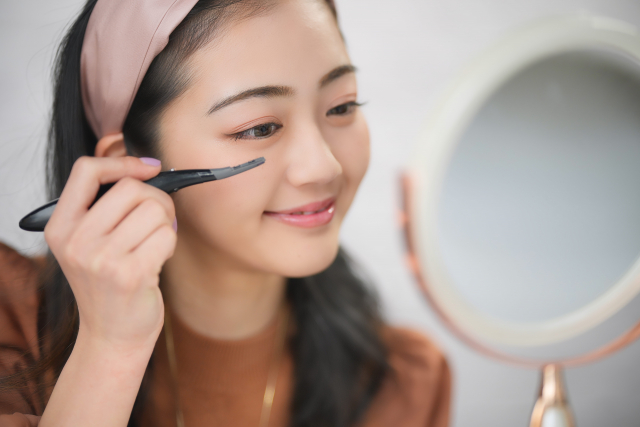
どうしてもうまくまつ毛が挟めない場合や、目頭や目じりがうまく上がらない場合には、部分用ビューラーやホットビューラーを活用しましょう。
特にスティックタイプのホットビューラーは、まつ毛にあてるだけでカールできるので簡単。
熱を加えることで、まつ毛が上がりやすく持ちも良くなるので、まつ毛が上がりにくい一重まぶたの人には特におすすめのアイテムです。
一重で上がらないまつ毛をしっかり上げた後はカールキープするのも大切!
一重まぶたの人の場合、まつ毛のカールがすぐに取れてしまうという方も多いです。
せっかくコツを覚えてきれいにまつ毛を上げられても、持ちが悪かったら意味がないですよね。
ここからは、重い一重まぶたの人でも、まつ毛のカールを綺麗にキープさせるためのポイントを紹介していきます。
上向きまつ毛をキープさせるコツ①マスカラ下地は必須
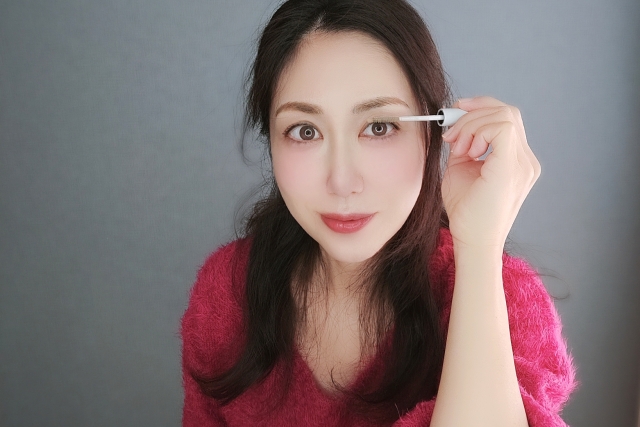
カールが取れやすい人は、マスカラ前にはまつ毛下地を必ず使ってください。
下地を使う事でビューラーで上げたまつ毛をしっかりとキープしてくれます。
特にカールキープ効果のあるものを使うと、持ちが全然違いますよ。
上向きまつ毛をキープさせるコツ②マスカラは「根元しっかり毛先は軽く」
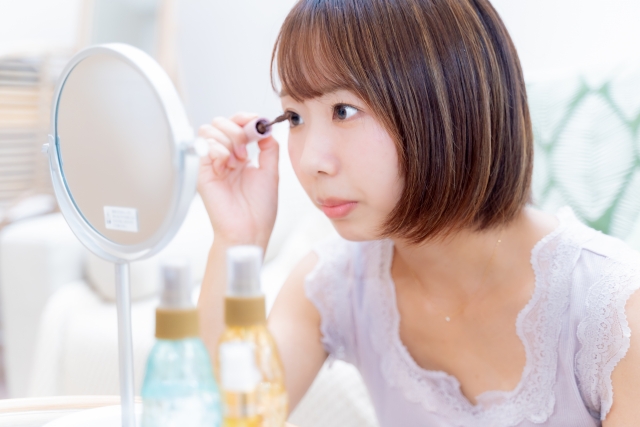
マスカラは根元中心に塗り、毛先は軽くつけるのがポイント。
毛先にたっぷり塗ってしまうと、まつ毛が下がりやすくなってしまいます。
マスカラのタイプは下地と同様に、カール効果のあるマスカラを選ぶようにしましょう。
重ね塗りをするとまつ毛が重くなってしまうので、塗りすぎはNGです。
ポイントをおさえて一重で上がらないまつ毛も綺麗にカールさせよう!
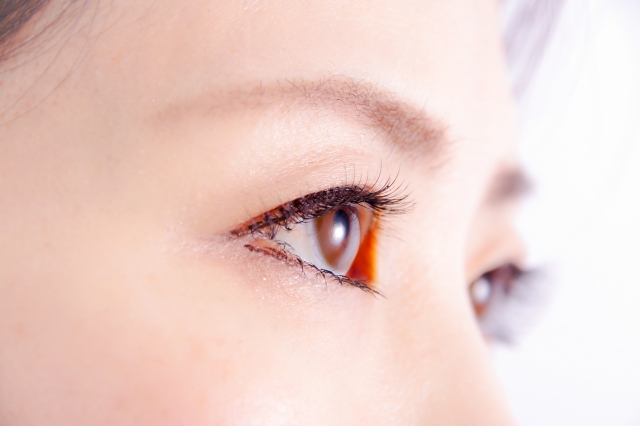
重い一重でもまつ毛をしっかり上げるポイントについて紹介しました。
なかなかまつ毛が上がらなくて悩んでいる方も、ポイントをおさえることでしっかりまつ毛を上げることが可能です、
最近では、重いまぶたでも上向きまつ毛に仕上げられる、一重まぶたのためのビューラーやマスカラなども販売されています。
これらのアイテムもうまく取り入れながら、憧れの上向きまつ毛を手に入れましょう。
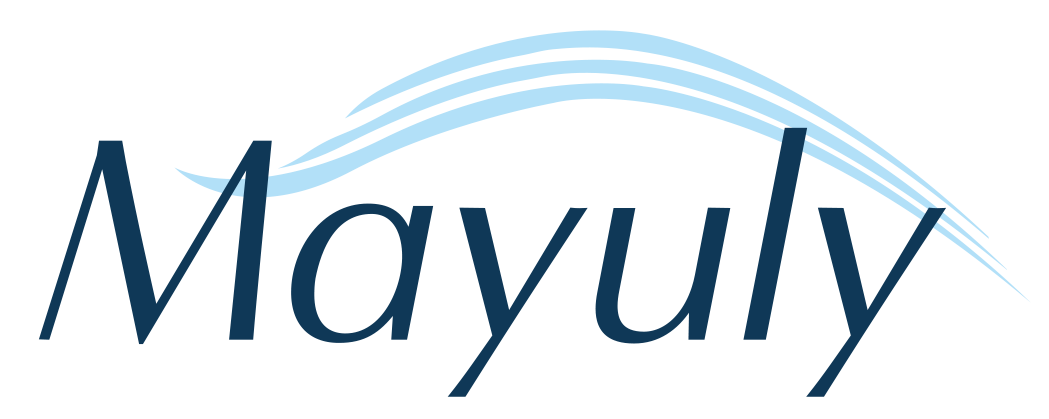



コメント
9 in the combined arm get cheap cytotec no prescription
ivermectin 3 mg for people – buy candesartan 8mg for sale tegretol 200mg for sale
isotretinoin us – buy isotretinoin 40mg for sale buy zyvox 600 mg generic
buy cheap amoxicillin – oral valsartan 80mg combivent order
azithromycin price – cheap zithromax bystolic brand
buy generic prednisolone 20mg – order azithromycin 250mg buy progesterone 200mg pill
lasix uk – buy betnovate 20gm generic3 betamethasone 20 gm creams
purchase doxycycline pills – acticlate us buy glipizide 10mg for sale
augmentin 375mg price – buy generic nizoral buy generic duloxetine over the counter
order rybelsus 14mg – rybelsus 14 mg sale cyproheptadine us
tizanidine price – plaquenil 400mg sale cost microzide 25 mg
generic tadalafil 5mg – sildenafil 100mg pills for sale order sildenafil 50mg online
sildenafil 100mg for sale – tadalafil india tadalafil max dose
Post-Cycle Therapy (PCT) for Testosterone Enanthate: A Comprehensive Overview
Post Cycle Therapy (PCT) 101: The Bodybuilder’s Guide
Post Cycle Therapy (PCT) is a critical phase for bodybuilders who have completed a steroid cycle.
During this time, the body repairs and recovers, helping to maintain muscle mass and prevent the adverse effects of steroid use.
PCT involves the use of specific medications to support
recovery, enhance testicular function, and manage side effects
like gynecomastia or water retention.
The Importance of PCT
After a cycle of anabolic steroids, the body’s natural
production of hormones can be suppressed. Testosterone levels may drop,
leading to muscle wasting, fatigue, and other recovery issues.
PCT helps restore hormonal balance, ensuring
sustained gains while mitigating side effects.
SERMs for PCT
Selective Estrogen Receptor Modulators (SERMs) are commonly used in PCT.
They work by binding to estrogen receptors, blocking the negative effects of excess estrogen while allowing beneficial effects to
persist.
Clomid (Clomiphene Citrate)
Clomid is a SERM often used to stimulate the release of LH
(luteinizing hormone) and FSH (follicle-stimulating hormone), promoting testicular function. It helps reverse the suppression of testosterone caused by steroid
use.
Nolvadex (Tamoxifen Citrate)
Nolvadex is another SERM used in PCT, primarily to manage gynecomastia.
It works by blocking estrogen receptors in the muscle tissue,
helping to preserve muscle mass while allowing testosterone to function effectively.
Raloxifene (Evista)
Raloxifene is a SERM that can be used at higher doses for PCT.
It’s effective in managing estrogen-related side effects and maintaining muscle hardness.
Toremifene (Fareston Citrate)
Toremifene, also a SERM, is often prescribed for PCT due to its ability to stimulate LH and FSH release, aiding in testicular recovery.
Enclomiphene (Androxal)
Enclomiphene is a more recent SERM used in PCT. It’s
designed to enhance testosterone levels while minimizing estrogenic side effects.
Aromatase Inhibitors for PCT
Aromatase inhibitors (AIs) like Arimidex, Aromasin, and
Letrozole are often included in advanced PCT protocols.
They prevent the conversion of androgens to estrogens, reducing the
risk of estrogenic side effects.
Arimidex (Anastrozole)
Arimidex is a powerful AI that significantly reduces estrogen levels, making it ideal for
managing gynecomastia and other estrogen-related issues during PCT.
Aromasin (Exemestane)
Aromasin is another AI used in PCT. It inhibits aromatase
activity, reducing the conversion of testosterone to estrogen and thereby minimizing side effects like gynecomastia.
Letrozole (Femara)
Letrozole is a third-generation AI commonly prescribed in PCT for its ability
to suppress estrogen production, aiding in recovery
and maintaining muscle mass.
Arimistane (ATD)
Arimistane is an AI that can be used as part of
a PCT protocol. It’s particularly useful
in managing aromatization and preserving lean muscle mass.
HCG for PCT
Human Chorionic Gonadotropin (HCG) is sometimes used in PCT to stimulate testicular function and maintain natural hormone
production, especially during a steroid cycle that includes tamoxifen or other SERMs.
Dopamine Agonists for PCT
Dopamine agonists like Cabergoline and Pramipexole are sometimes
included in advanced PCT protocols. They can help regulate metabolism, enhance fat
burning, and improve recovery.
Vitamin B6 (P-5-P)
Vitamin B6 plays a crucial role in PCT by
supporting the production of testosterone and managing estrogen levels.
It’s often recommended during the recovery phase to aid in muscle retention.
Alpha-Reductase Inhibitors for PCT
Finasteride and Dutasteride are alpha-reductase
inhibitors used in PCT to manage DHT (dihydrotestosterone) levels.
They can help reduce the risk of androgenic side effects like acne and hair loss.
On-Cycle Therapy
On-cycle therapy refers to the use of medications during
a steroid cycle to minimize sides like gynecomastia or water retention.
This is often combined with PCT to ensure optimal recovery.
Anti-estrogenic ancillaries
These include medications like Spironolactone, used during PCT to manage fluid retention and other estrogen-related side effects.
Gynecomastia
Gynecomastia is a common side effect of steroid use due to elevated estrogen levels.
PCT helps reverse this by blocking estrogen receptors
in the breast tissue.
Water Retention
Steroid cycles can cause water retention, leading to bloating and discomfort.
PCT medications like Nolvadex and Spironolactone are used to manage these effects.
Acne (Estrogenic)
Excess estrogen can lead to acne during steroid use. Nolvadex and other SERMs help reduce estrogen levels,
improving skin health.
Sexual Dysfunction
Steroid cycles can impair libido and sexual function due to
altered hormone levels. PCT helps restore hormonal balance,
improving sexual health.
Anti-Androgenic Ancillaries
These medications help manage androgenic side effects like acne, hair loss, and
prostate growth during PCT.
Hair Loss
Androgenetic hair loss can occur due to elevated DHT levels.
Alpha-Reductase inhibitors like Finasteride are often used in conjunction with PCT to mitigate this issue.
Acne (Androgenic)
While some acne is estrogenic, steroid use can also lead to androgenic acne due to elevated testosterone levels.
Managing DHT levels through Alpha-Reductase inhibitors helps reduce this.
Prostate Growth (Benign Prostatic Hyperplasia)
Anabolic steroids can cause prostatic hyperplasia, which can be
managed during PCT using medications like Tamsulosin or Finasteride.
Anti-Progestogenic Ancillaries
These are used in PCT to manage progesterone-related side effects,
though they’re less commonly prescribed than anti-estrogenic medications.
Gynecomastia and Lactation
PCT helps address gynecomastia while also managing lactation risks by
normalizing hormone levels.
Erectile Dysfunction
Steroid use can impair erectile function due to hormonal changes.
PCT helps restore natural hormone levels, improving sexual
health.
Post-Cycle Therapy
PCT is the phase following a steroid cycle where recovery and rejuvenation occur.
It’s essential for maintaining muscle mass and overall health after
steroid use.
Blasting and Cruising
These terms refer to the intense training phases often paired with PCT, as
they’re critical for maximizing gains post-cycle.
Transitioning to PCT
Starting PCT too early or at the wrong time can be counterproductive.
It’s generally recommended to wait 4-6 weeks after a cycle before
beginning PCT.
PCT Protocols for Steroid Users
Steroid users often follow specific protocols tailored to their cycle history, goals, and potential sensitivities to medications
like Clomid and Nolvadex.
Clomid and Nolvadex for PCT
These two are the most commonly used medications in PCT.
Clomid is often used first to stimulate testicular function, followed by Nolvadex to manage estrogen levels.
PCT Length
The duration of a PCT can vary based on individual needs
and goals. A standard cycle might be 4-6 weeks, but longer cycles are sometimes used for more significant recovery.
PCT Dosage
Dosages vary depending on the medication and
the individual’s hormone levels. Blood work is often required to monitor progress and adjust dosages accordingly.
PCT Protocols for SARM Users
SARMs (Selective Androgen Receptor Modulators) like Ostarine or Ligandrol can also require PCT, though the protocol may differ from traditional anabolic steroids.
Mildly Suppressive SARM Cycles
These cycles involve minimal suppression of the
body’s hormone production, so PCT is often shorter and less
intense compared to steroid use.
Moderately Suppressive SARM Cycles
More suppressive SARM cycles may require a longer or more robust PCT protocol to restore natural hormone levels effectively.
Highly Suppressive SARM Cycles
In cases of very suppressive SARM use, advanced PCT protocols involving medications
like Clomid, Nolvadex, and AIs may be necessary to recover hormone production.
Is HCG Necessary?
While HCG isn’t always strictly necessary for
PCT, it’s often used in combination with Clomid or alone in specific cases where testicular function needs to be stimulated more effectively.
FAQs
What are the main benefits of PCT?
When should I start PCT?
What happens if I don’t do PCT?
How long is a PCT cycle?
SARMs vs. SERMs: What’s the difference?
Clomid or Nolvadex for PCT? Or both?
Do I need a PCT after using SARMs?
What does “Anti-E” mean?
Final Thoughts on PCT
PCT is a cornerstone of bodybuilding therapy, helping users maintain muscle mass and overall health after
steroid or SARM cycles. Proper implementation ensures sustained gains while minimizing the risk of adverse effects.
Always consult with a knowledgeable healthcare provider before starting any PCT protocol to ensure
safety and effectiveness.
Who Am I?
I am a dedicated bodybuilder with experience in steroid and SARM
usage, as well as in designing and implementing effective PCT
protocols. My goal is to provide clear, evidence-based information to help others achieve their fitness goals safely
and effectively.
Also visit my web blog; anabolic steroids article
atorvastatin 10mg cost – brand atorvastatin 10mg order lisinopril 2.5mg online cheap
cenforce 50mg usa – order cenforce 100mg sale glucophage 500mg without prescription
atorvastatin 20mg over the counter – lisinopril canada lisinopril 10mg generic
buy omeprazole 20mg online cheap – purchase metoprolol pill purchase atenolol generic
depo-medrol tablets – methylprednisolone 8 mg without prescription generic triamcinolone 4mg
oral clarinex – buy claritin cheap buy priligy 60mg generic
buy misoprostol for sale – diltiazem 180mg for sale diltiazem 180mg sale